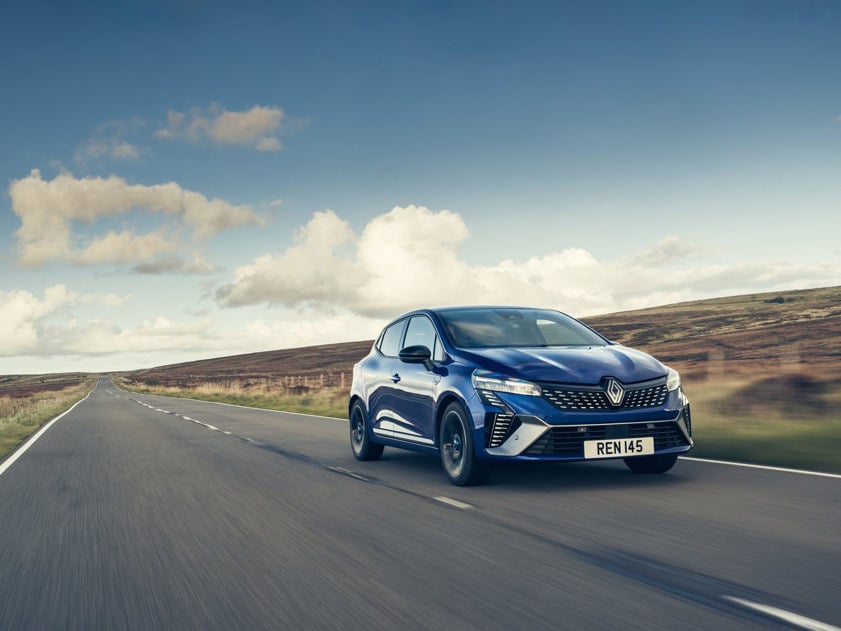
Hybrid cars have moved from niche curiosities to mainstream choices. If you’re looking for a car that keeps running costs low without sacrificing comfort or practicality, a hybrid could be the perfect fit for 2025.
Hybrids combine a petrol engine with an electric motor, giving you the best of both worlds: the reassurance of fuel for long journeys and the efficiency of electric power around town.
For family drivers and those who like financial predictability, the real appeal is simple: better fuel economy and lower day-to-day costs.
In this blog, we'll look at the most economical hybrid cars for 2025, explain what makes a hybrid economical, and highlight some of the best mpg hybrid cars available. We discuss:
Looking for a hybrid car lease deal?
We're one of the UK's largest car leasing brokers, offering a range of deals on affordable hybrid cars. For more information, check out our hybrid deals or call one of our experts on 0345 811 98595.
When people ask about "the most economical hybrid", they usually think about how far the car can go on a gallon of fuel. This is fair, as at the end of the day, the main purpose of a hybrid is to boost fuel economy and reduce CO2 emissions.
But what makes a hybrid so attractive for drivers looking to save money?
- Fuel efficiency - Hybrids are designed to stretch every drop of petrol by using their electric motor at lower speeds and in stop-start traffic.
- Lower running costs - With the electric motor doing some of the heavy lifting, you'll save money on fuel over time, especially if you drive in a city or urban area. Many hybrids also sit in a lower tax bracket thanks to reduced CO2 emissions.
- Affordable leasing options - The upfront costs of buying a hybrid can feel steep, but leasing makes them more accessible. A fixed monthly price gives you predictability, which is ideal for families or young drivers.
In short, an economical hybrid is one that returns excellent mpg, predictable costs, and family-friendly practicality.
“Hybrid vehicles are particularly efficient for around-town driving, as they recover energy through stop-and-start driving. They tend to return a better fuel economy than a non‑hybrid car, as well as lower emissions”

If you’re after the highest possible fuel efficiency without the hassle of plugging in, these five cars should top your shortlist. They are all self-charging hybrids that return 63–70 mpg in official tests, yet still provide everyday practicality and affordable price tags.

1. MG MG3 Hybrid+
The MG 3 Hybrid+ is hard to ignore if you want a cheap new hybrid. MG’s first self‑charging hybrid delivers 191 bhp yet returns over 64 mpg. Compact yet surprisingly spacious, it’s aimed at drivers who want to cut costs without compromising on everyday practicality.
- Fuel economy: 64.2 mpg WLTP
- Engine: 1.5‑litre petrol with an electric motor
- Pros: Excellent value, lots of equipment, responsive performance
- Cons: Steering wheel lacks reach adjustment and the hybrid system can feel laggy

2. Renault Clio
Renault’s Clio E‑Tech uses a 1.6‑litre petrol engine and dual electric motors derived from Formula 1 technology. This compact hatch delivers brisk performance and over 60 mpg while offering a well‑finished cabin and agile handling. It’s ideal for drivers who want a chic hatchback with hybrid efficiency.
- Fuel economy: 67 mpg WLTP
- Engine: 1.6‑litre petrol hybrid system
- Pros: Striking design, lots of equipment, good ride and handling
- Cons: Limited rear space and the engine gets noisy under hard acceleration

3. Toyota Yaris
Toyota pioneered hybrid technology, and the Toyota Yaris is one of the most efficient small cars money can buy. It uses a 1.5‑litre Atkinson‑cycle engine mated to an electric motor via an e‑CVT. Constant refinement means it delivers a smooth, lively drive and an official 70.6 mpg combined.
- Fuel economy: Up to 70.6 mpg WLTP
- Engine: 1.5‑litre petrol with electric motor and e‑CVT
- Pros: Superb fuel economy, lots of safety kit and standard equipment
- Cons: Small boot, rear seats less spacious and the engine is noisy if you push it

4. Hyundai Kona
If you need a small SUV with decent fuel economy, the Hyundai Kona Hybrid is worth a look. Offering generous space for passengers and luggage, the Kona is the perfect hybrid for growing families. Its 1.6‑litre hybrid powertrain produces 127 bhp and returns around 65 mpg on the official WLTP test.
- Fuel economy: 65.6 mpg WLTP
- Engine: 1.6‑litre petrol with electric motor
- Pros: Comfortable ride, spacious cabin and lots of standard tech
- Cons: Not particularly exciting to drive and the styling may not suit everyone

5. Toyota Corolla Hatchback
The Toyota Corolla Hybrid blends the practicality of a family hatchback with impressive efficiency. Available with 1.8 or 2.0‑litre hybrid powertrains, the Corolla shuffles seamlessly between petrol and electric drive using an e‑CVT. It’s a strong option for those who want predictable costs and a comfortable drive.
- Fuel economy: 64.1 mpg WLTP
- Engine: 1.8 or 2.0‑litre petrol hybrid engines
- Pros: Excellent mpg, spacious cabin, Toyota’s reputation for reliability.
- Cons: Not as exciting to drive as some rivals, infotainment feels dated.

6. Hyundai Ioniq
The Hyundai Ioniq has earned a reputation as one of the most economical hybrids ever made. That alone sounds pretty impressive, but add in sleek stylish and generous technology, and the Ioniq is a hard tough hybrid too look past.
- Fuel economy: Around 65mpg
- Engine: 1.6-litre petrol hybrid
- Pros: Superb mpg, aerodynamic design, affordable to lease
- Cons: Less engaging to drive, boot space slightly reduced by batteries

7. Honda Jazz
The Jazz is just a brilliant all-round car. It's most recent version looks fantastic, there's plenty of interior space, and it also features an excellent hybrid powertrain. If you're looking to save some money on fuel while doing your daily errands, you can't go wrong with the Jazz.
- Fuel economy: Around 62mph
- Engine: 1.5-litre petrol hybrid
- Pros: Flexible magic seats, strong mpg, Honda reliability
- Cons: Reputation as a pensioners car, smaller boot than rivals

8. Kia Niro Hybrid
The Niro Hybrid is a family-friendly SUV that offers plenty of interior space and decent hybrid efficiency. If you're after a large SUV that favours the basics first, the Niro Hybrid won't let you down.
- Fuel economy: 58mpg
- Engine: 1.6-litre petrol hybrid
- Pros: Spacious interior, SUV practicality, good standard equipment
- Cons: Boring styling and mediocre to drive
Here’s a quick comparison table. Real‑world fuel consumption can be lower than the official figures depending on driving style and conditions.
Model | WLTP Fuel Economy* |
|---|---|
64.2 mpg | |
67 mpg | |
70.6 mpg | |
65.6 mpg | |
64.1 mpg | |
Hyundai Ioniq | 65 mpg |
Honda Jazz Hybrid | 62 mpg |
Kia Niro Hybrid | 58 mpg |
*Correct WLTP fuel economy at published date.
Even if you choose a very economical hybrid car, the way you drive has a big impact on how much fuel money you actually save. Here are some quick and easy tips to squeeze every mile out of your tank:
- Drive smoothly - Hybrids thrive when you avoid harsh acceleration and braking.
- Plan shorter journeys - If possible, combine errands into one run so your hybrid runs more efficiently.
- Keep tyres in check -Underinflated tyres increase resistance and reduce efficiency.
- Travel light - Remove unnecessary weight from the boot.
For more information, check out our guide on Fuel Economy.
Switching to a hybrid isn’t just about saving money at the pumps, it’s about choosing a car that fits your lifestyle today while preparing for the future.
With their blend of petrol and electric power, self-charging hybrids give you confidence on long journeys, impressive mpg in town, and predictable running costs month after month.
Ready to explore hybrids further? Browse our range of hybrid models or get in touch to discuss your budget and requirements. Modern hybrids aren’t just green, they’re friendly to your wallet too.
Originally posted: 29th December 2023
Last updated: 3rd September 2025
Due to be reviewed: 26th January 2026

